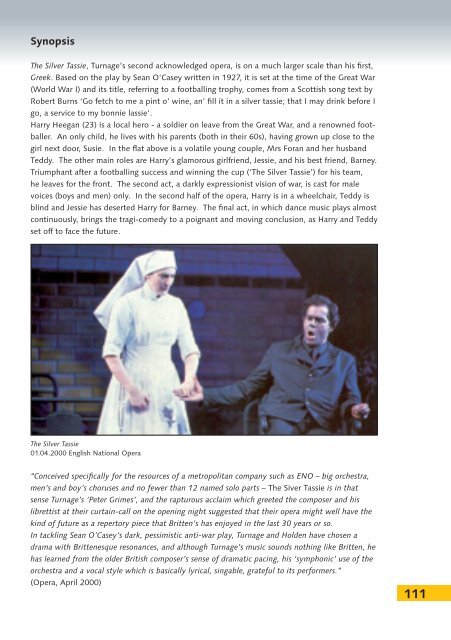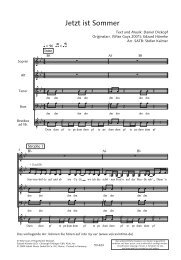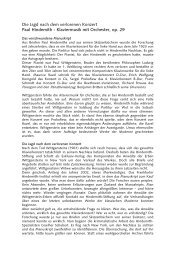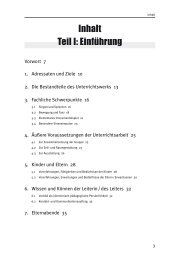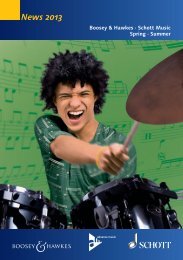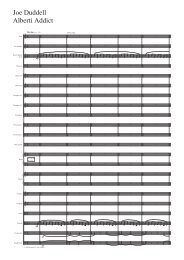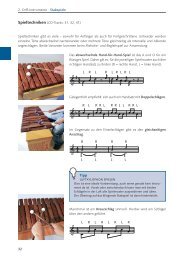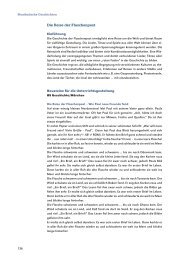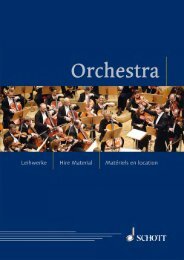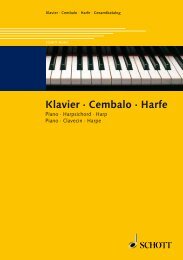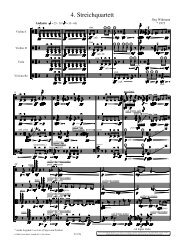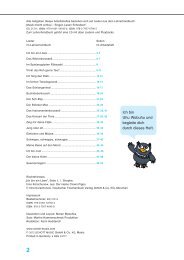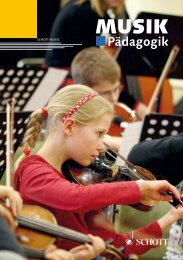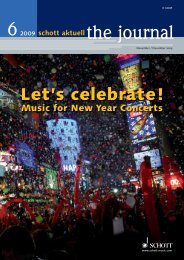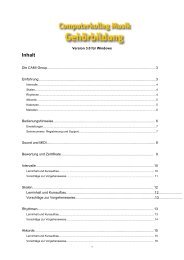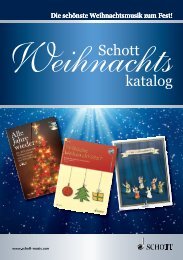Music Theatre since 1990 - Schott Music
Music Theatre since 1990 - Schott Music
Music Theatre since 1990 - Schott Music
Create successful ePaper yourself
Turn your PDF publications into a flip-book with our unique Google optimized e-Paper software.
Synopsis<br />
The Silver Tassie, Turnage’s second acknowledged opera, is on a much larger scale than his first,<br />
Greek. Based on the play by Sean O’Casey written in 1927, it is set at the time of the Great War<br />
(World War I) and its title, referring to a footballing trophy, comes from a Scottish song text by<br />
Robert Burns ‘Go fetch to me a pint o’ wine, an’ fill it in a silver tassie; that I may drink before I<br />
go, a service to my bonnie lassie’.<br />
Harry Heegan (23) is a local hero - a soldier on leave from the Great War, and a renowned footballer.<br />
An only child, he lives with his parents (both in their 60s), having grown up close to the<br />
girl next door, Susie. In the flat above is a volatile young couple, Mrs Foran and her husband<br />
Teddy. The other main roles are Harry’s glamorous girlfriend, Jessie, and his best friend, Barney.<br />
Triumphant after a footballing success and winning the cup (‘The Silver Tassie’) for his team,<br />
he leaves for the front. The second act, a darkly expressionist vision of war, is cast for male<br />
voices (boys and men) only. In the second half of the opera, Harry is in a wheelchair, Teddy is<br />
blind and Jessie has deserted Harry for Barney. The final act, in which dance music plays almost<br />
continuously, brings the tragi-comedy to a poignant and moving conclusion, as Harry and Teddy<br />
set off to face the future.<br />
The Silver Tassie<br />
01.04.2000 English National Opera<br />
“Conceived specifically for the resources of a metropolitan company such as ENO – big orchestra,<br />
men’s and boy’s choruses and no fewer than 12 named solo parts – The Siver Tassie is in that<br />
sense Turnage’s ‘Peter Grimes’, and the rapturous acclaim which greeted the composer and his<br />
librettist at their curtain-call on the opening night suggested that their opera might well have the<br />
kind of future as a repertory piece that Britten’s has enjoyed in the last 30 years or so.<br />
In tackling Sean O’Casey’s dark, pessimistic anti-war play, Turnage and Holden have chosen a<br />
drama with Brittenesque resonances, and although Turnage’s music sounds nothing like Britten, he<br />
has learned from the older British composer’s sense of dramatic pacing, his ‘symphonic’ use of the<br />
orchestra and a vocal style which is basically lyrical, singable, grateful to its performers.”<br />
(Opera, April 2000)<br />
111


